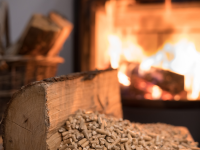
We know the environment impacts our health.
So what does it say when your home -- the place you live -- is presenting a negative influence of its own?
Beyond gaining a better understanding of things like smoke-heavy cooking and third-hand tobacco smoke, experts at Celia Scott Weatherhead School of Public Health and Tropical Medicine are also trying to understand the role that household allergens play in longterm health.
Outdoor air pollution is fairly well studied, and we now know that it contributes significantly to heart and lung disease, but we know surprisingly less about the air we breathe in our homes.
Fortunately, Tulane is attempting to understand home safety even better. The Household Air Pollution Study (HAPS) is investigating how indoor air quality affects longterm health, while the Allergen Reduction and Child Health Study (ARCHS) is addressing asthma triggers among children.
In the latter case, researchers visit participant homes where they address dust control, getting rid of cockroaches, and providing families with education on asthma and techniques for effectively reducing triggers at home.
For both studies, participating volunteers learn about prevention techniques that lead to better health outcomes. Data collected provides information to expand the learning beyond each individual home.
Good health begins at home. And Tulane is working to make the home even safer.



